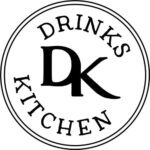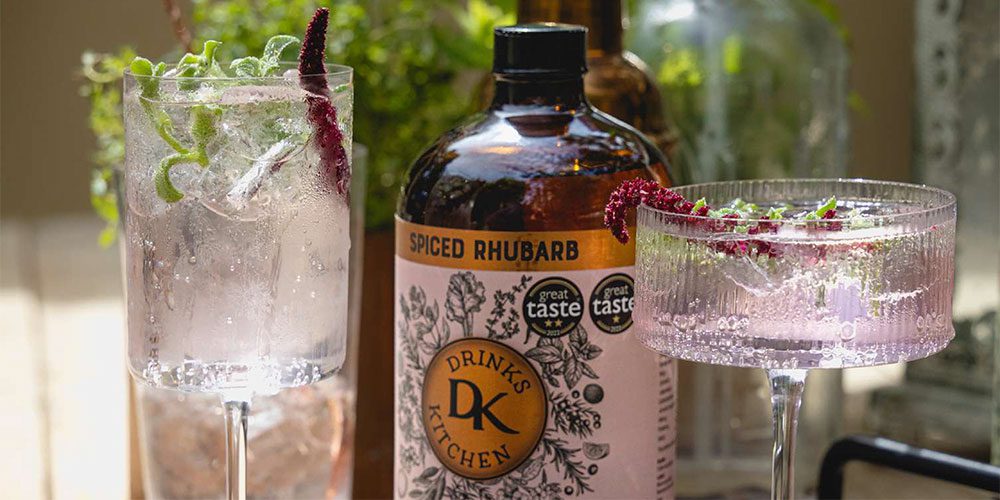Staying tuned in to trends and change is crucial in the food and drink sector. Right now, one of the most significant shifts we’re witnessing is the dramatic rise of low and no-alcohol drinks and now a wave of sober bars.
It’s a trend that’s already reshaped the drinks landscape in the UK in terms of consumption in bars, restaurants and at home. However, I was alerted to a further development by the presence of my client Drinks Kitchen at the launch of the Bristol’s first zero-alcohol – or sober – bar, Arc in Bristol.
Sober Bars: The Latest Low and No-Alcohol Revolution
The numbers tell a compelling story. In the UK, alcohol consumption has been declining steadily. The proportion of adults who drink at least once a week has fallen from 55% to 47% between 2011 and 2023. The shift is fundamentally changing what’s happening in our bars, pubs, and restaurants across the country. Sales of low and no-alcohol beers and ciders surged by 32% in the first quarter of 2025 compared to the same period in 2024 – a remarkable increase. It’s more than a passing fad.
This growth is being driven by multiple factors. Health consciousness is at the forefront, with consumers increasingly aware of the links between alcohol consumption and various health conditions. I’m sure there’s an economic element, too, with many choosing to reduce spending on alcohol during challenging financial times. Perhaps most importantly, there’s been a cultural shift: being sober or “sober-curious” is no longer seen as ‘boring’ or ‘antisocial’. Instead, it’s increasingly viewed as a positive, intentional lifestyle choice.
Going Out Without Drinking Out
What makes this trend particularly significant for the hospitality sector is that people aren’t staying home, they’re still going out and socialising. They’re just choosing to do it differently. When people visit pubs and bars, 27% of consumers now plan to drink more soft drinks, while an equal proportion say they’ll reduce the number of alcoholic drinks per visit. Interestingly, almost half of customers are “zebra-striping” – alternating between alcoholic and low or no-alcohol drinks on the same occasion. This behaviour represents a middle ground between abstinence and traditional drinking patterns, creating interesting opportunities for venues, and therefore for producers too.
Young adults aged 25-34 are leading this charge, demonstrating the strongest demand for alcohol-free options when socialising. London sees the highest demand, accounting for over a quarter of low and no-alcohol sales in pubs and bars, but the trend is spreading rapidly across the entire country.
The implications are clear: venues need to offer more than just a token alcohol-free beer or a basic fruit juice. Today’s non-drinking customers want sophisticated, flavourful options that make them feel just as catered to as their drinking companions. They want craft mocktails, premium alcohol-free spirits, and innovative beverages that deliver on taste and experience.
Arc Bristol: A Bold New Chapter
Against this backdrop, Bristol has made history with the opening of Arc, the city’s first completely sober bar. Arc represents something genuinely groundbreaking in the UK hospitality scene: a venue entirely dedicated to alcohol-free socialising. Open till 11pm every night.
Described by its team as “a love letter to Bristol’s club culture – minus the hangover,” Arc isn’t trying to replicate a traditional bar experience without the booze. Instead, it’s creating something entirely new. With live music four nights a week, the venue offers a carefully curated menu of exclusively non-alcoholic drinks, including alcohol-free beers from local brewery Wiper and True, kombuchas, iced teas, CBD sodas and, of course, Drinks Kitchen’s award-winning non-alcoholic aperitif.
 Celebrating Quality: The Drinks Kitchen Connection
Celebrating Quality: The Drinks Kitchen Connection
One of the most encouraging aspects of Arc’s opening has been seeing quality British brands like Drinks Kitchen being part of this exciting new venture. For those unfamiliar, Drinks Kitchen is an award-winning non-alcoholic aperitif brand founded by Alli Briarlis from Weston-super-Mare in Somerset.
Alli’s story mirrors the broader cultural shift we’re witnessing. After giving up alcohol during lockdown in 2020, she found the non-alcoholic options available disappointing – drinks that tried to mimic alcoholic beverages rather than celebrating flavours in their own right. So, she created something new: botanical concentrates made with high-quality distillates and extracts, designed to deliver complex, grown-up flavours. Everything in the range is crafted with the kind of care and attention typically reserved for premium spirits. These aren’t afterthoughts or compromise options; they’re drinks designed to stand on their own merits, working beautifully with sparkling water, tonic or as part of a non-alcoholic cocktail.
Craft, quality and innovation
Seeing brands like Drinks Kitchen feature in venues like Arc is tremendously exciting. It demonstrates that the UK is developing not just a market for alcohol-free drinks, but a genuine culture around them, one that values craft, quality and innovation. This is how movements become mainstream. Those producers that contribute will capture a share of a growing market. Choosing non-alcoholic has gone from anomaly to acceptable in double-quick time. The completely sober, sober-curious, designated drivers, pregnant women, people on medication, those from non-drinking cultures, and everyone who simply wants a night out without the hangover will follow.
As the statistics clearly show, change is already here. The question isn’t whether the alcohol-free trend will continue – it’s which businesses will be quick enough to embrace it. Cheers! Whatever you’re drinking.
If you looking to understand your product-market fit with regards to trends, customer needs and consumer demand, talk to Relish.


